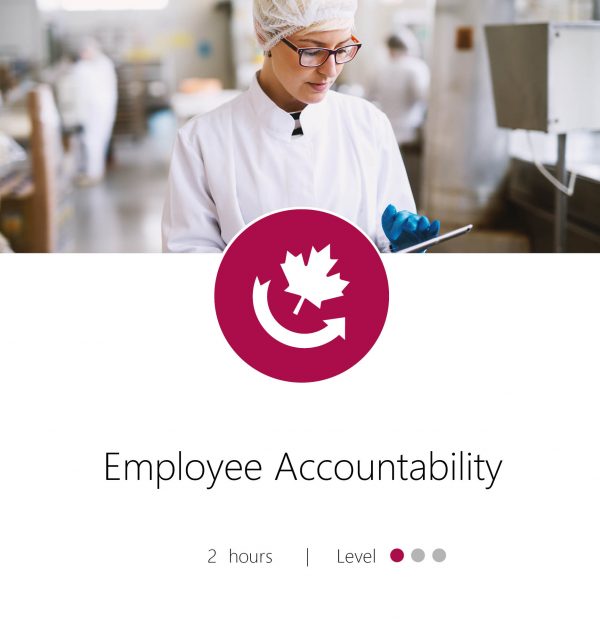Employee Accountability
$110.00
Accountability in the workplace means that all employees are responsible for their actions, behaviors, performance, and decisions. It’s also linked to an increase in commitment to work and employee morale, which leads to higher performance.
It is proven that organizations who promote accountability are more successful and more productive. In this course, you will learn about what accountability is, how to promote it in your organization, and how to become more accountable to yourself and others.
Available!
Accountability in the workplace means that all employees are responsible for their actions, behaviors, performance, and decisions. It’s also linked to an increase in commitment to work and employee morale, which leads to higher performance.
It is proven that organizations who promote accountability are more successful and more productive. In this course, you will learn about what accountability is, how to promote it in your organization, and how to become more accountable to yourself and others.
Learning Objectives
- Understand what accountability is and what events in history have shaped our view of it
- Identify the requirements for personal and corporate accountability
- Apply the cycle of accountability and the fundamental elements required to build an accountable organization
- Describe what individuals must do to become accountable
- Build skills required for accountability, including goal setting, giving and receiving feedback, and delegation
- Pinpoint ways to build ownership in your organization
- Isolate areas for further self-improvement
Course Outline
- Module 1: Defining Accountability
- Module Overview
- What is Accountability?
- Why the Focus on Accountability?
- The Results Are In
- The Era of Distrust
- 1960s
- 1970s
- 1980s and 1990s
- The First Years of 2000
- Lessons Learned
- Module 2: Creating an Accountable Organization
- Module Overview
- Key Characteristics
- The Accountability Cycle
- Ways to Increase Accountability
- The Building Blocks
- Case Study
- Questions
- Honesty
- Assertiveness
- Responsibility
- A Final Note
- Module 3: Setting Goals and Expectations
- Tips and Tricks
- SPIRIT
- Structuring Expectations
- A Final Note
- Making Connections
- Top Ten Ways to Create and Share Ownership
- Module 4: Doing Delegation Right
- Understanding Delegation
- Four Basic Steps to Delegation
- Deciding What to Delegate
- The Five Levels
- Breaking Down the Model
- Monitoring Delegation
- How Do You Monitor?
- Module 5: Offering Feedback
- The Ingredients of Good Feedback
- In Private
- Balanced
- Relevant
- Specific
- Documented
- Personal (In the Right Way)
- Module 6: A Toolbox for Managers
- Identifying Learning Opportunities
- Building Accountability as a Manager
- Making Connections
- Module 7: Personal Action Plan
- Module Overview
- Starting Point
- Where I Want to Go
- How I Will Get There
- Post-Course Assessment
*Receive a nationally recognized certificate for participation in this course
Who Should Take This Course?
- Owners
- Supervisors
- Production Personnel
- Business Leaders
- Remote Workers






